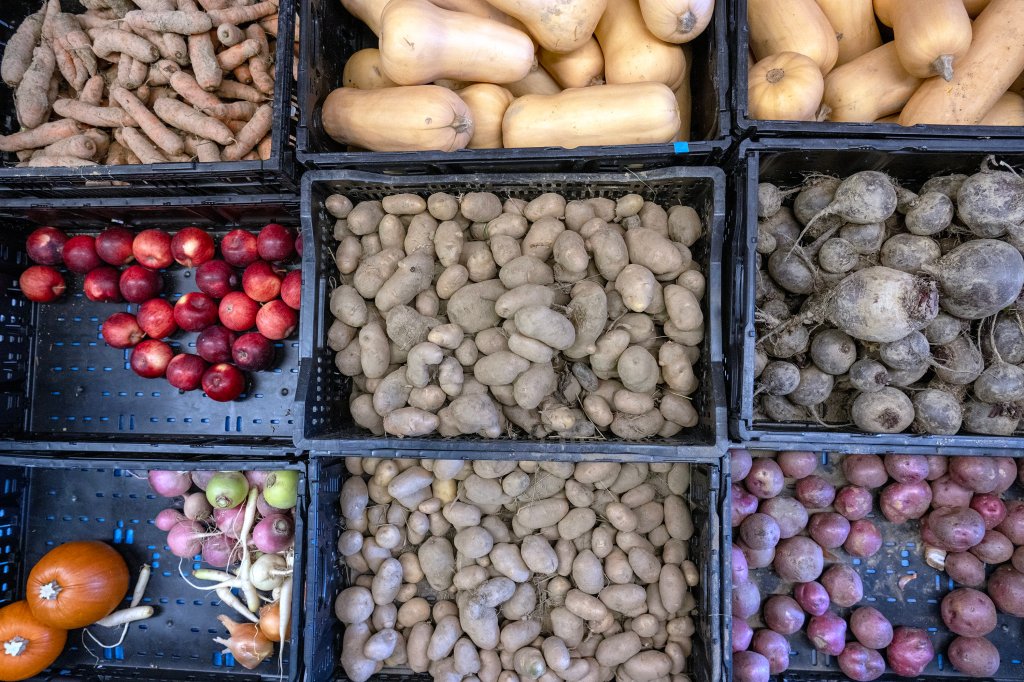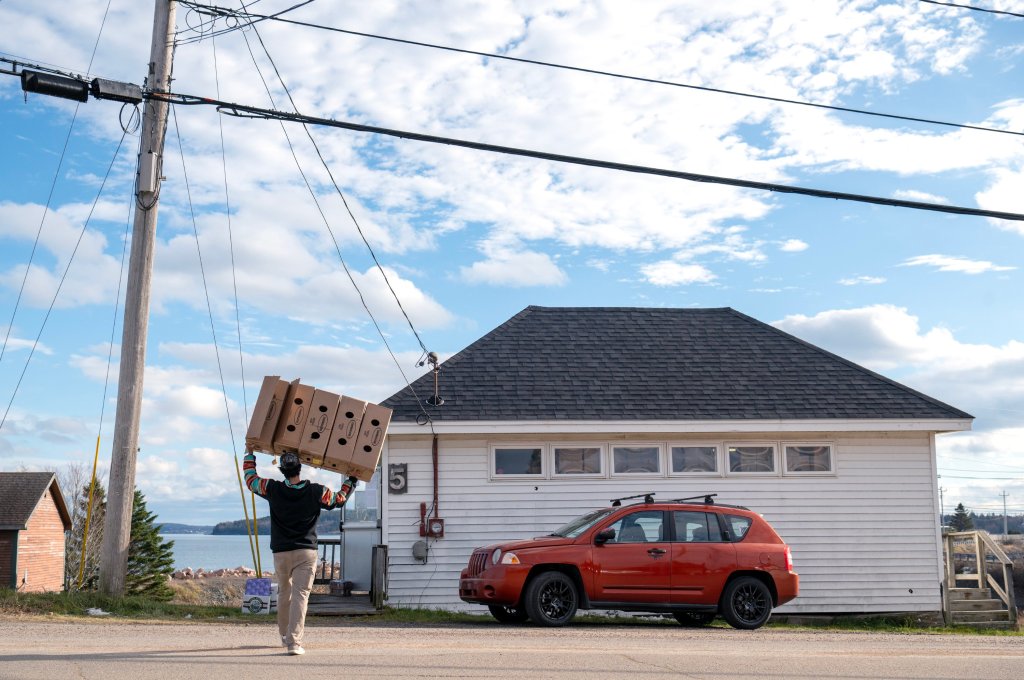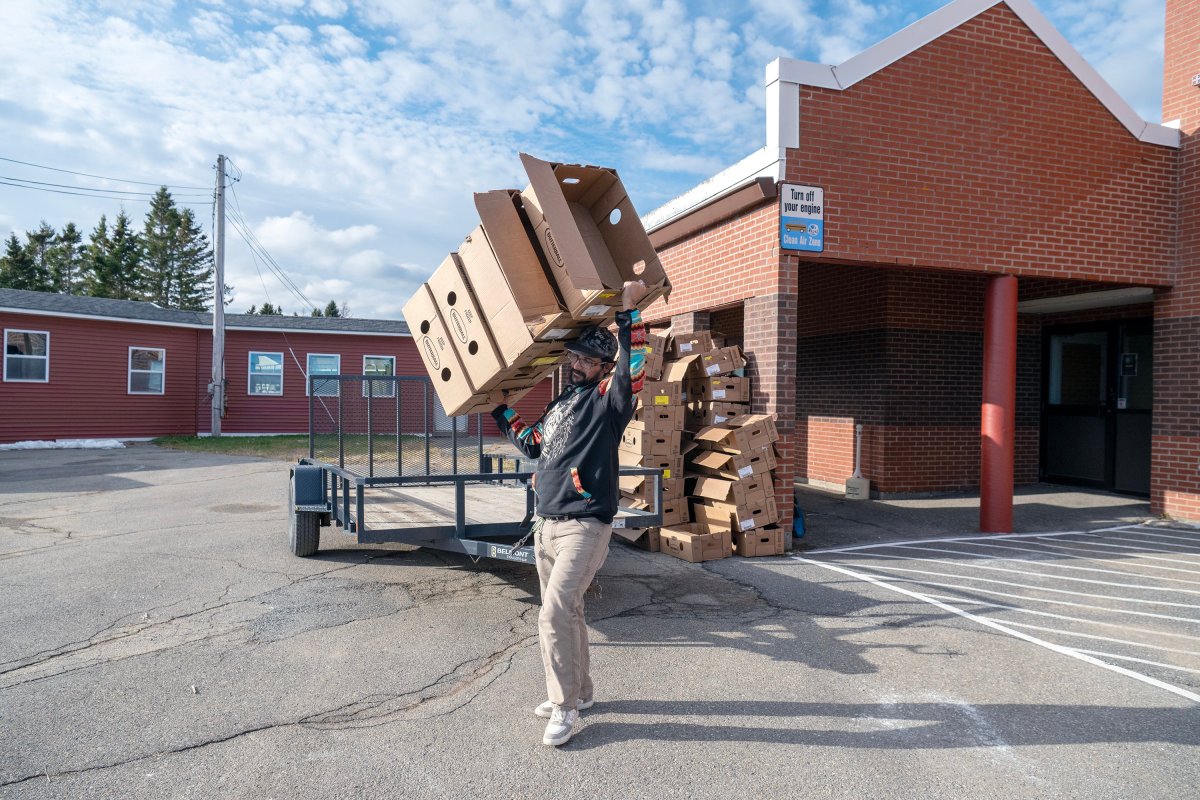SIPAYIK — On Thursday, families around Maine will cozy up around the table and sometime before or after they consume a turkey, they’ll give thanks.
It’s a commendable reason to take pause, says Barry Dana, former chief of the Penobscot Nation.
“It’s too bad that concept is hijacked by the term ‘Thanksgiving,'” he said.
For Dana, as for many Indigenous people, the fourth Thursday of November is tied inextricably to institutional colonialism and the massacre of Native Americans by European settlers.
Still, Wabanaki tribal governments in Maine give away Thanksgiving foods and hundreds of turkeys each November.
On the Passamaquoddy Reservation at Sipayik (Pleasant Point), 150 Butterballs flew off the lot in a few hours the week before Thanksgiving. Another 150 arrived the following Monday, said Ralph Francis, the tribal food pantry coordinator.
“It’s a great political stunt,” Dana said with a chuckle. “(If) they don’t do it, they don’t get reelected.”
His own tribe gave away over 200 turkeys Monday.
It was a multi-day meal in 1621, attended by some 55 settlers and 90 Wampanoag people, that is often recognized as the first Thanksgiving, said Liam Riordan, chair of the University of Maine history department and an expert in early American history. The event is often interpreted as an example of the dependence of colonial settlers on Indigenous people at the time.

Thanksgiving meals were common in the colony, Riordan said, and frequently celebrated triumph over hardship or in war. President Abraham Lincoln made Thanksgiving a national holiday during the Civil War.
Although the 1621 meal is recognized as the first Thanksgiving in retrospect, its origins may date to 1637, when Massachusetts Bay Colony Gov. John Winthrop is thought to have issued a proclamation for a Thanksgiving feast following a massacre of Pequot people during the ongoing war between the groups.
The massacre is a “disturbing point of reference” in connection to the early holiday, Riordan said.
“It’s extremely needed to have a native voice in the mix while all of America is celebrating — literally celebrating — something they probably don’t quite understand,” Barry Dana said.
Dolores Crofton-Macdonald, a member of the Houlton Band of Maliseet Indians, gathers with her family on Thanksgiving for a meal. They typically have a turkey, provided by the tribal government, and play Scrabble or watch the 1956 Charlton Heston biblical drama “The Ten Commandments.”
The Thanksgiving story, for all its shortcomings and weathered falsehoods, still recognizes the positive contributions of Native people to American society that continue today, she said.

But giving thanks is not confined just to that day.
“The Wabanaki people are typically very grateful always — it’s not one day of the year that we’re grateful,” Crofton-Macdonald said. “We’re a grateful people and a very communal people. We help those that are in need any time of the year.”
Dana is on board with gratitude, on Thursday and always. But to celebrate Thanksgiving as a holiday is to superimpose an unduly genteel version of history atop a dark period of colonial history, he said.
And although he used to gather with his in-laws for a meal, he plans to be in the woods this Thanksgiving, either running his dog team or hunting the buck that’s given him the runaround.
Reuben M. Schafir is a Report for America corps member who writes about Indigenous communities for the Portland Press Herald.
Editor’s note: This story was updated on Nov. 26 to correct the name of the food pantry coordinator. He is Ralph Francis.

